WEDNESDAY NATIONAL SHUTDOWN
SA largely ignores union calls for mass stayaway — but concerns ‘fair and factual’, admits government
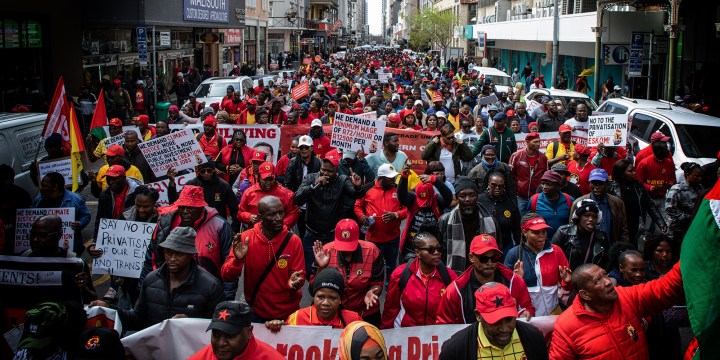
Calls by South Africa’s two largest trade union federations for workers to shut down the economy on Wednesday seemed to go largely unheeded. Marches in major cities to protest against the cost of living crisis drew a maximum of a few thousand participants in each. While accepting that the unions’ concerns are ‘fair and factual’, presidency representative Mondli Gungubele suggested that there was little that government could do.
On a day when unions called for a mass stayaway from work to protest against the cost of living crisis, new figures from Stats SA revealed that consumer inflation has hit its highest point since 2009.
The major contributors: the spike in the cost of food, electricity and fuel.
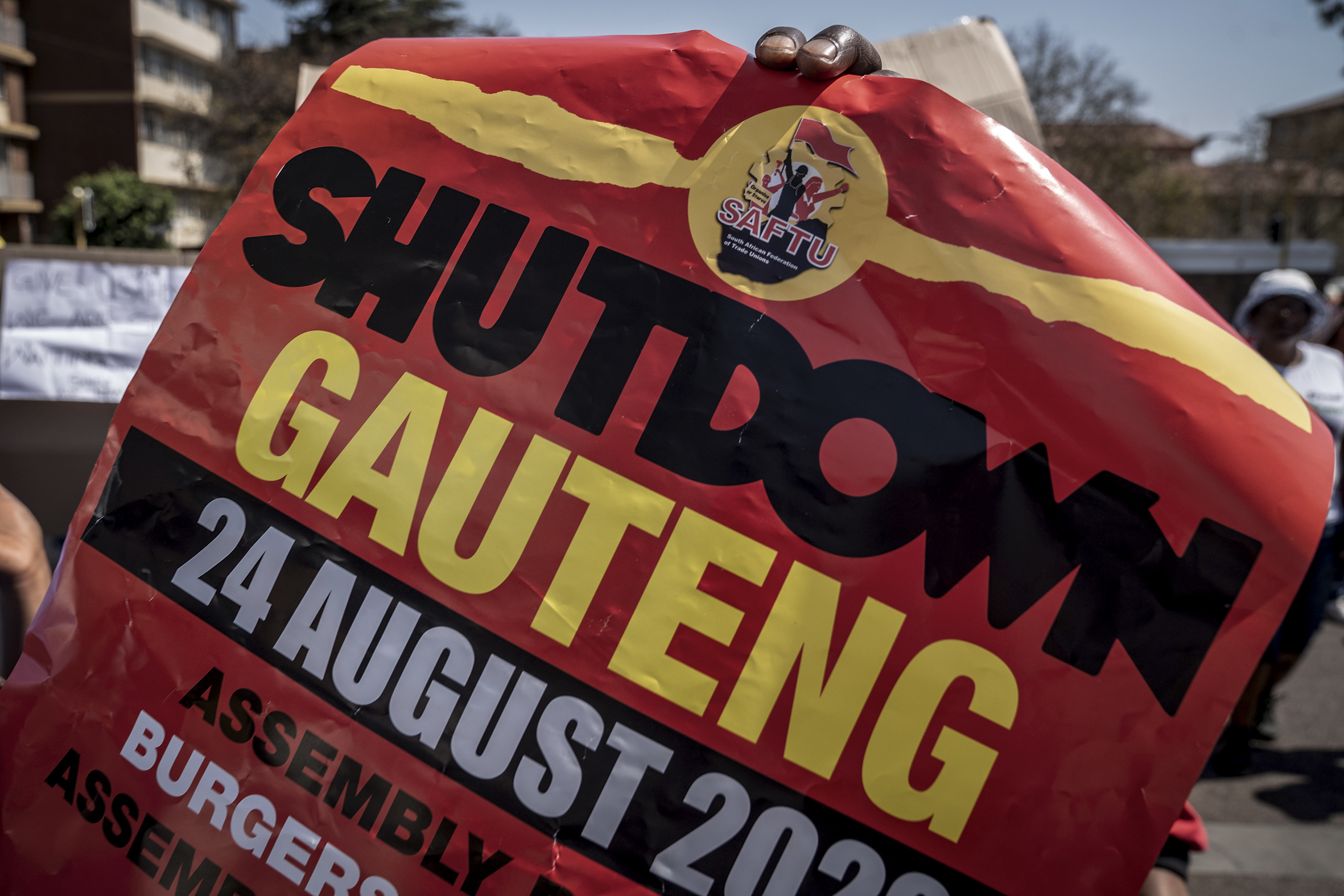
A man holds up a poster advertising the shutdown as he and others arrive at the Union Buildings in Pretoria. (Photo: Shiraaz Mohamed)
Wednesday’s announcement in this regard was not news to the protesters who took to South Africa’s streets to demand government intervention in the growing unaffordability of basic goods and services. Daily Maverick spoke to frustrated strikers throughout the day who said they were under severe financial pressure and were struggling to afford transportation costs, food and electricity.
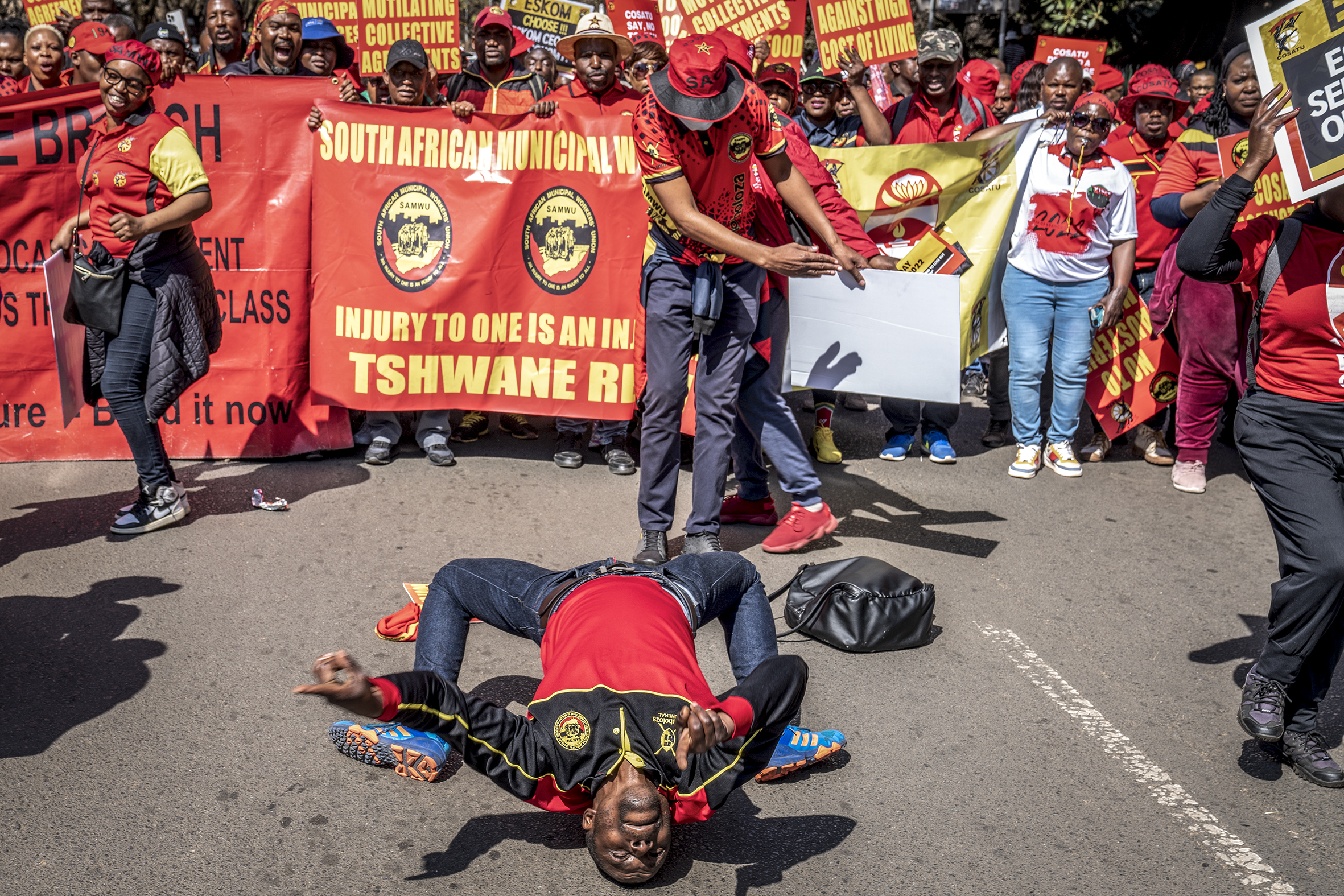
People enjoy the dance moves of a man in a South African Municipal Workers Union T-shirt in Pretoria. (Photo: Shiraaz Mohamed)
Few South Africans will have been unscathed by the present crisis. But even after taking up this vital and popular cause, union federations Cosatu and Saftu failed by any measure to shut down the country’s economy on Wednesday as they had pledged.
Minimal evidence of strike’s effect on economy
In advance of Wednesday’s planned mass action, Saftu General Secretary Zwelinzima Vavi had told journalists that the unions were not anticipating massive numbers of people to join the marches planned for South African cities. The unionist said that the abysmal state of public transport would make this impossible.
Vavi said that what was most important was not that workers turned out for the physical protests, but that they participated in the day’s nationwide strike.
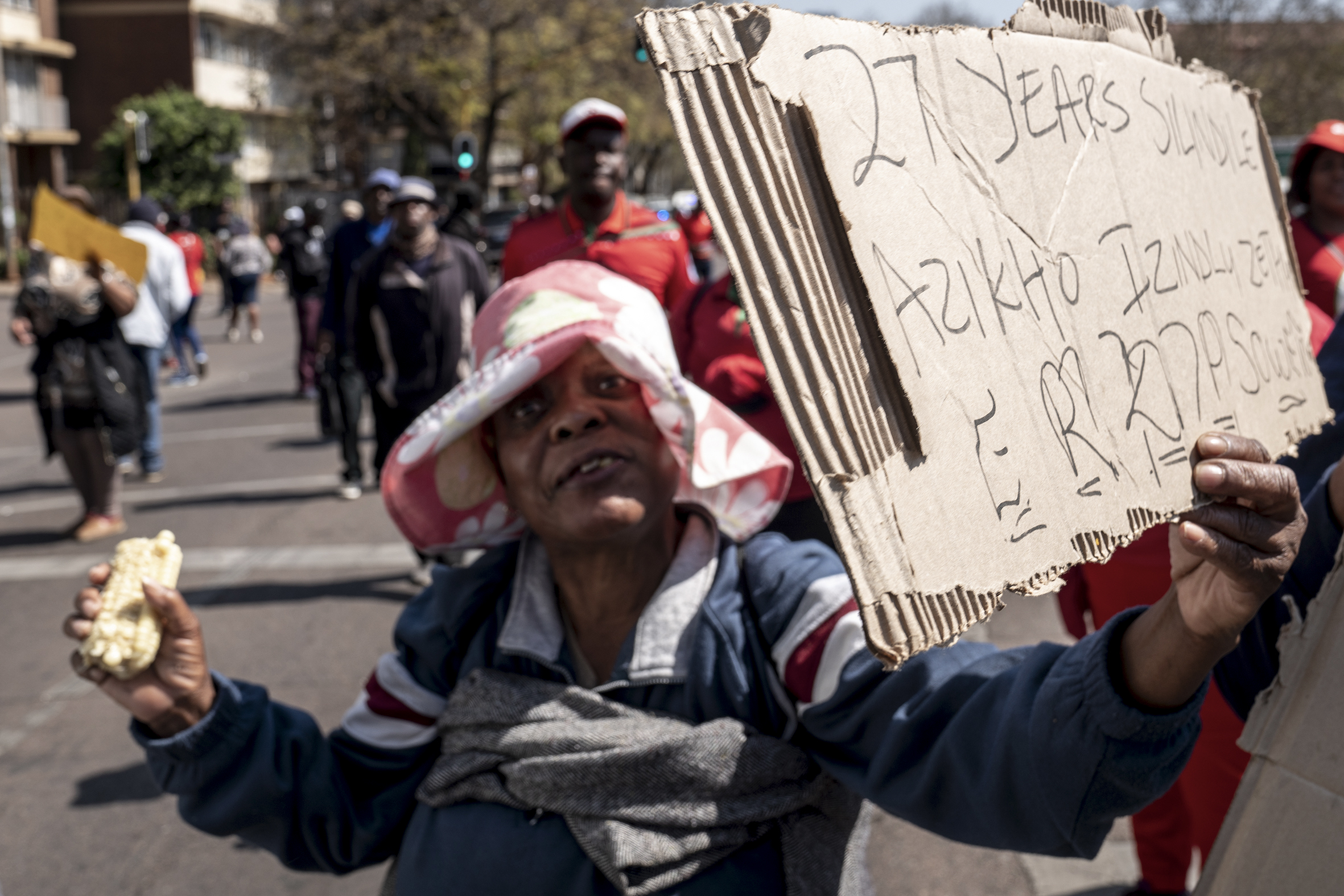
A woman holds a placard saying she has been waiting for an RDP house for the past 27 years. (Photo: Shiraaz Mohamed)
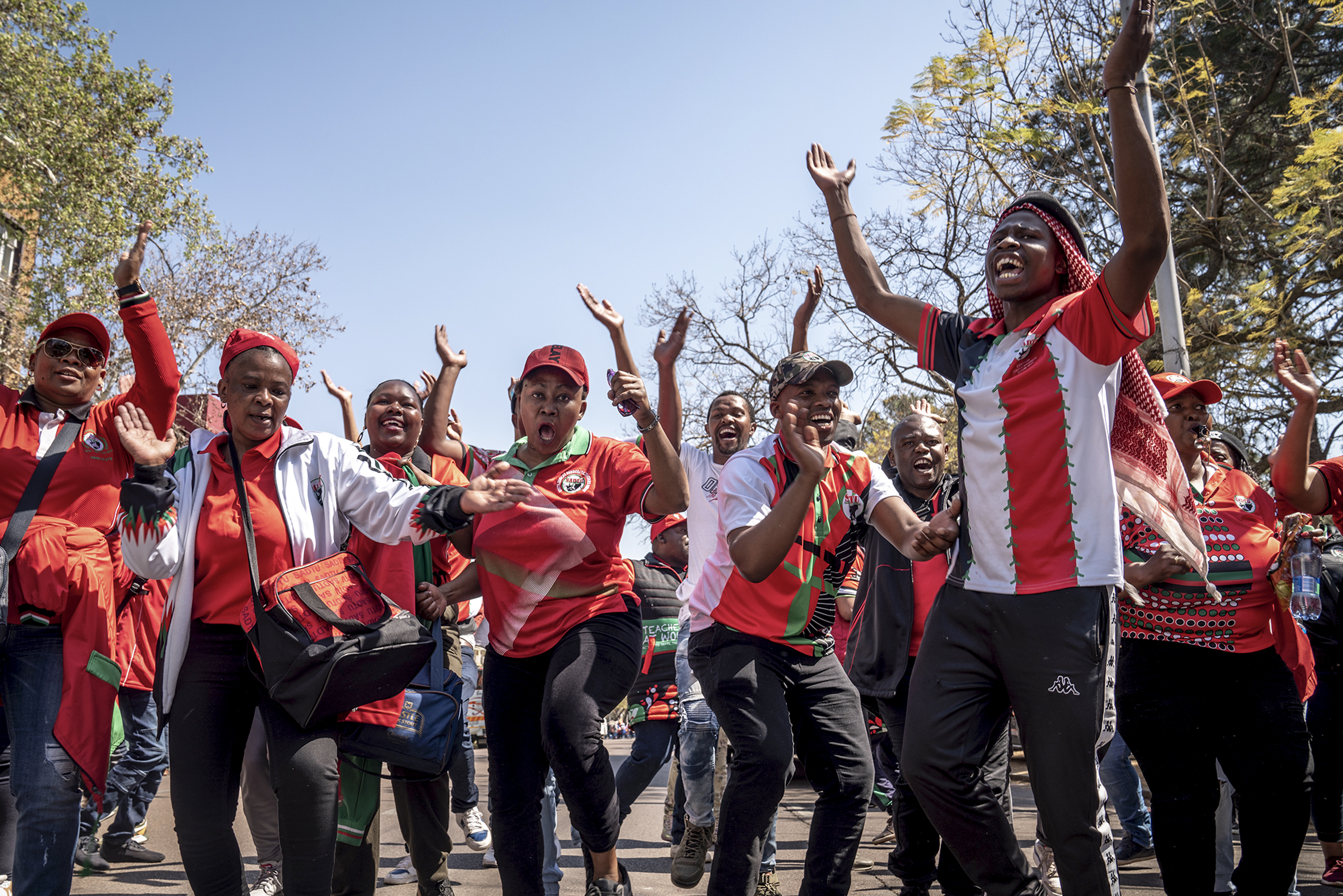
People in South African Democratic Teachers Union T-shirts sing and dance outside the Union Buildings in Pretoria. (Photo: Shiraaz Mohamed)
Yet from early on Wednesday morning, it was already clear that South African workers were not heeding the call to stay away from work in any significant numbers, as people poured into major cities for the start of the day’s employment as normal.
A greater impact would have been felt if the country’s taxi operators had chosen to participate in the strike, with Vavi claiming on Monday that 80% of workers now relied on taxis for their daily commute thanks to the collapse of rail services. But the South African National Taxi Council (Santaco) had already indicated that it was opting out, and minibus taxis buzzed in and out of urban centres on Wednesday morning as normal.
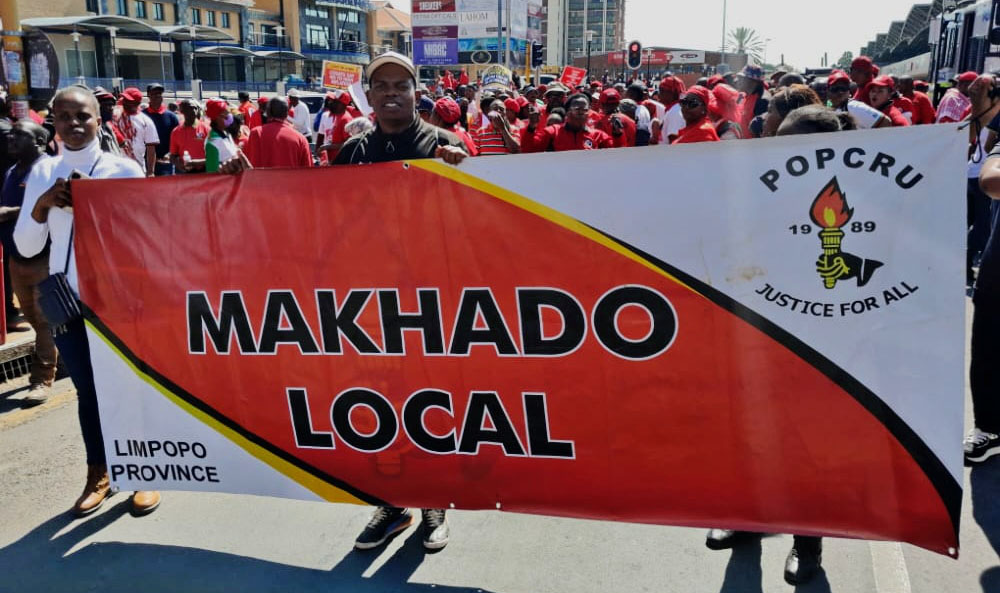
Workers in Polokwane, Limpopo, march to the office of Premier Stanley Mathabatha. (Photo: Mokgadi Mogy Mashako)
For other transport workers, it was a simple case of no work, no pay — a sacrifice few seemed willing to make in the current climate. E-hailing operators Uber and Bolt told Daily Maverick that their drivers were independent contractors, and participation in the shutdown was their individual prerogative — but they were unaware of any plans to take part.
Across industries, there was almost no evidence that striking workers were having an impact on the day’s activities. From major mining houses to the Gauteng Department of Education, the reports were consistent: it was business as usual.
Visit Daily Maverick’s home page for more news, analysis and investigations
Thin numbers on the streets
On Wednesday morning, there were indications that the unions’ planned protest action might be a downright failure. In Cape Town, by 11.30am — the starting time for marches to the Cape Town Civic Centre, and later to the Department of Mineral Resources and Energy, the Western Cape Legislature and Parliament — only a few hundred people had gathered.
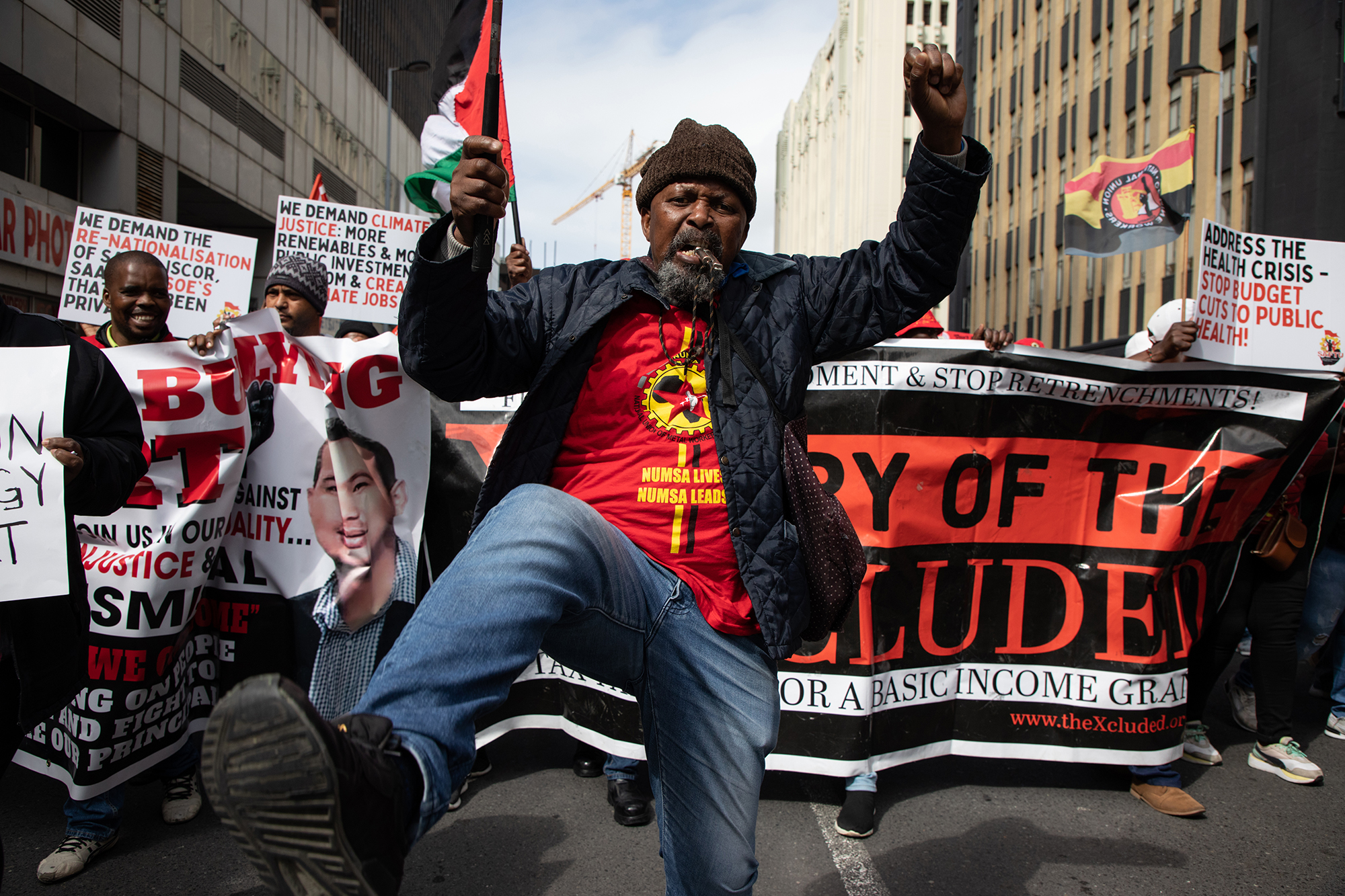
South African Federation of Trade Unions members march to the Department of Mineral Resources and Energy in Cape Town during the national shutdown march on 24 August 2022. (Photo: Gallo Images / Daily Maverick / Victoria O’Regan)
Bigger crowds attended the marches in Durban and Tshwane, but the maximum crowd size estimate in any one spot was around 3,000 protesters.
While Cosatu and Saftu were putting a brave face on events by the end of the day, one major reason why the low turnout will surely be a disappointment is that the action was planned to demonstrate mass solidarity between not just unions, but multiple smaller organisations on the left.
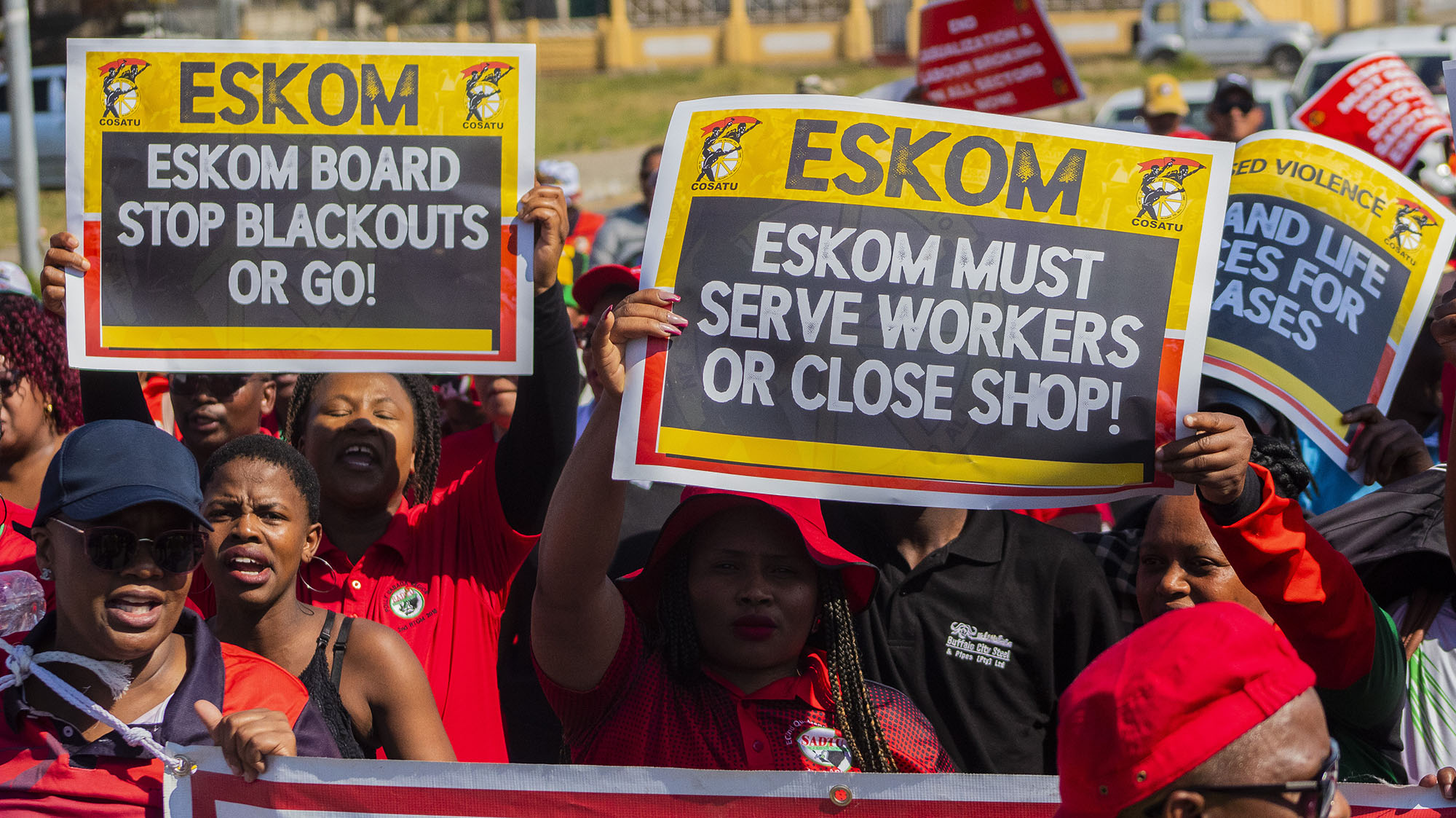
Workers display placards on their march from Qonce to the Eastern Cape Premier’s Office in Bhisho, Eastern Cape, on 24 August 2022. (Photo: Hoseya Jubase)
If Cosatu and Saftu are serious about searching for the cause of the low participation rates, their gaze should be turned inwards. Warnings that factionalism and feuding between and within union federations are causing a crisis of legitimacy for these bodies must now be taken seriously.
“Cosatu has ceased to be relevant,” one sceptical onlooker told Daily Maverick in Tshwane — where the lack of real unity between Saftu and Cosatu was made glaringly evident by the two organisations’ apparent inability to work together even on a supposedly joint venture such as this.
Buck-passing the order of the day
With memoranda of demands finally handed over to government officials, the response was one of buck-passing galore.
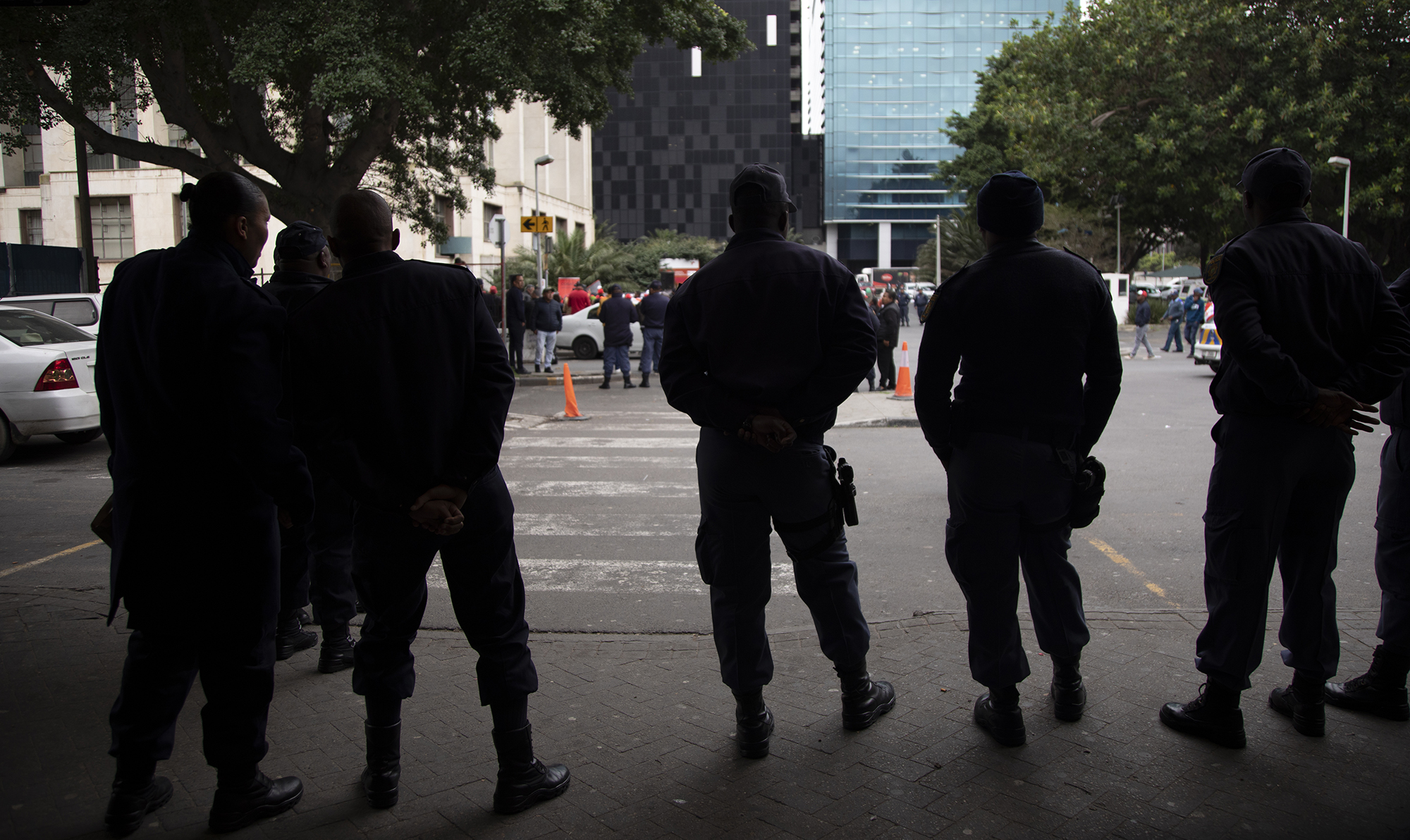
Law enforcement keep a close eye on Cosatu members protesting outside the offices of the Passenger Rail Agency of South Africa in Cape Town during the national shutdown march on 24 August 2022. (Photo: Gallo Images / Daily Maverick / Leila Dougan)
Cosatu picketers who marched to Prasa in Cape Town to protest about the state of rail services were met by a CEO who declared himself unsurprised by their unhappiness.
Prasa CEO David Mphelo told Daily Maverick subsequently: “The issue of transportation is hitting all of us… Remember, our primary mandate is to provide cheap transport. And we serve the poorest of the poor, and if that [cheap transport] does not exist, we expect these people to be concerned and worried”.
Saftu marchers who handed demands to Cape Town Mayor Geordin Hill-Lewis were met with a similar lack of resistance.
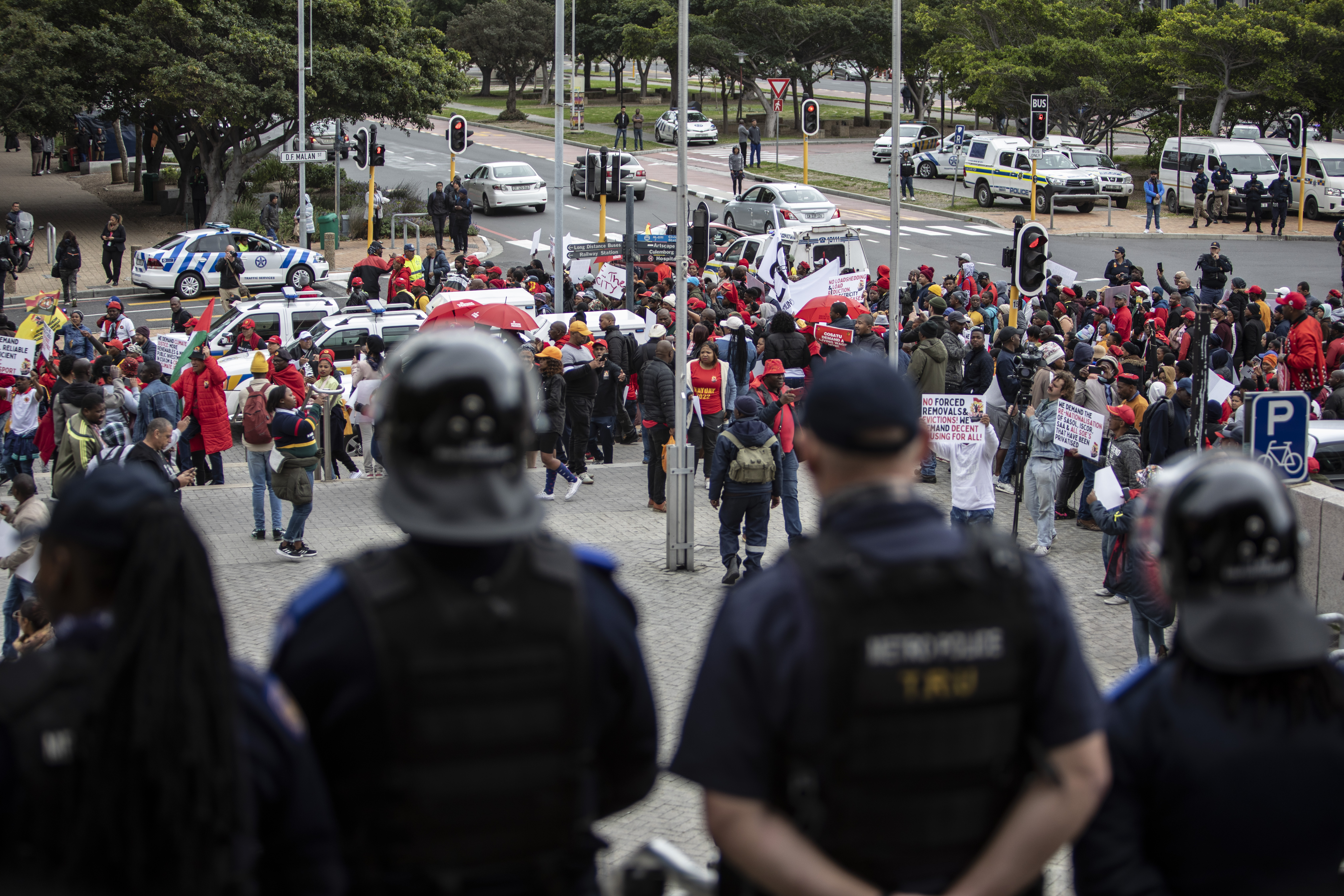
There was a heavy police presence outside the Civic Centre in Cape Town where trade union members handed over a memorandum to the mayor Geordin Hill-Lewis. (Photo: Leila Dougan)
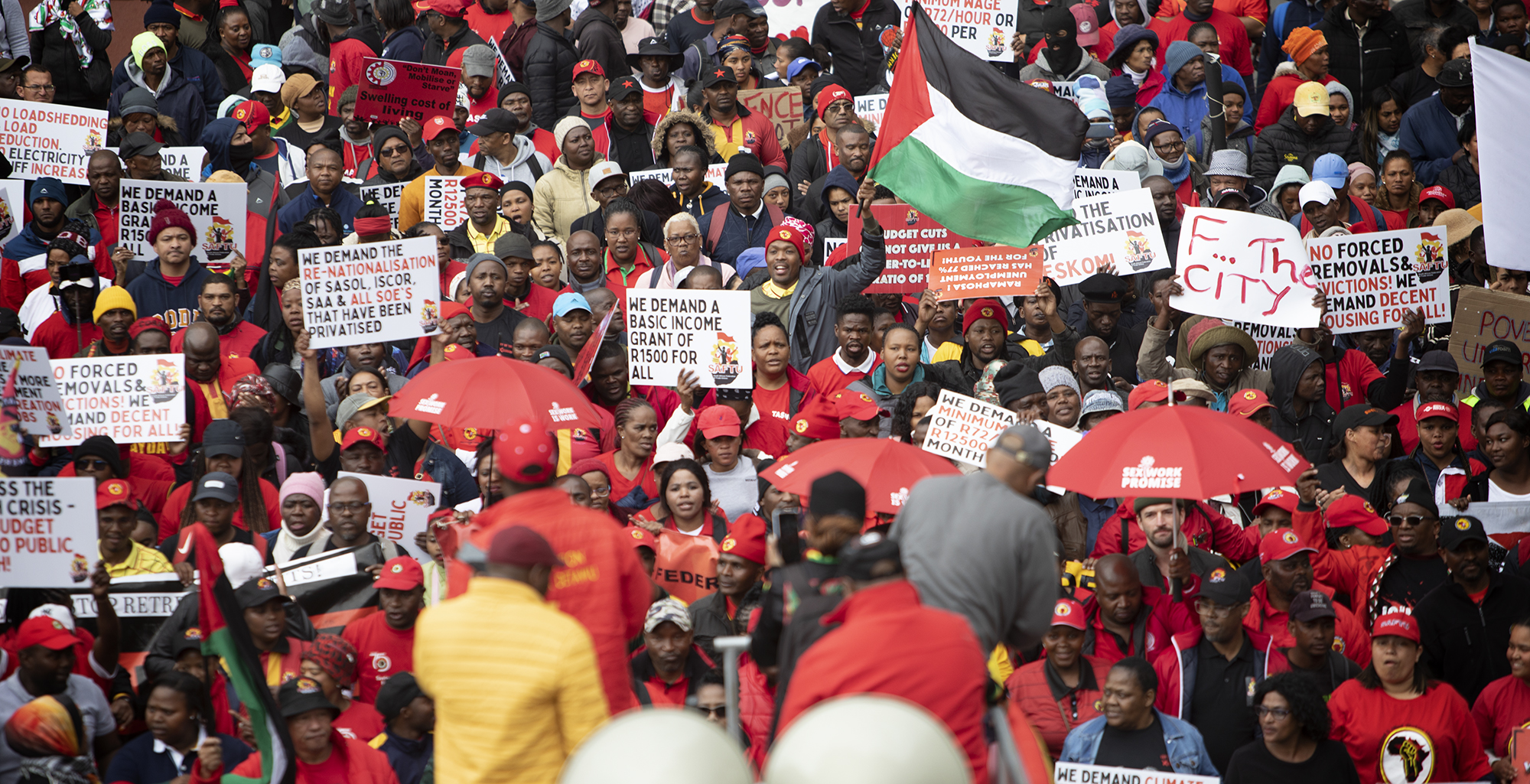
Saftu members march to Cape Town Civic Centre during the national shutdown march on 24 August 2022. (Photo: Leila Dougan)
“I went to receive the memorandum from the small gathered crowd, and was happy to so do,” the mayor told Daily Maverick.
“Their concerns were mainly crime and load shedding: two concerns I share, and am busy working on every day.”
Even in Tshwane, where Minister in the Presidency Mondli Gungubele received the memorandum on behalf of the national government, there was no real pushback from authorities as to what the unions were expressing.
Gungubele in fact described the unions’ concerns as “fair and factual”.
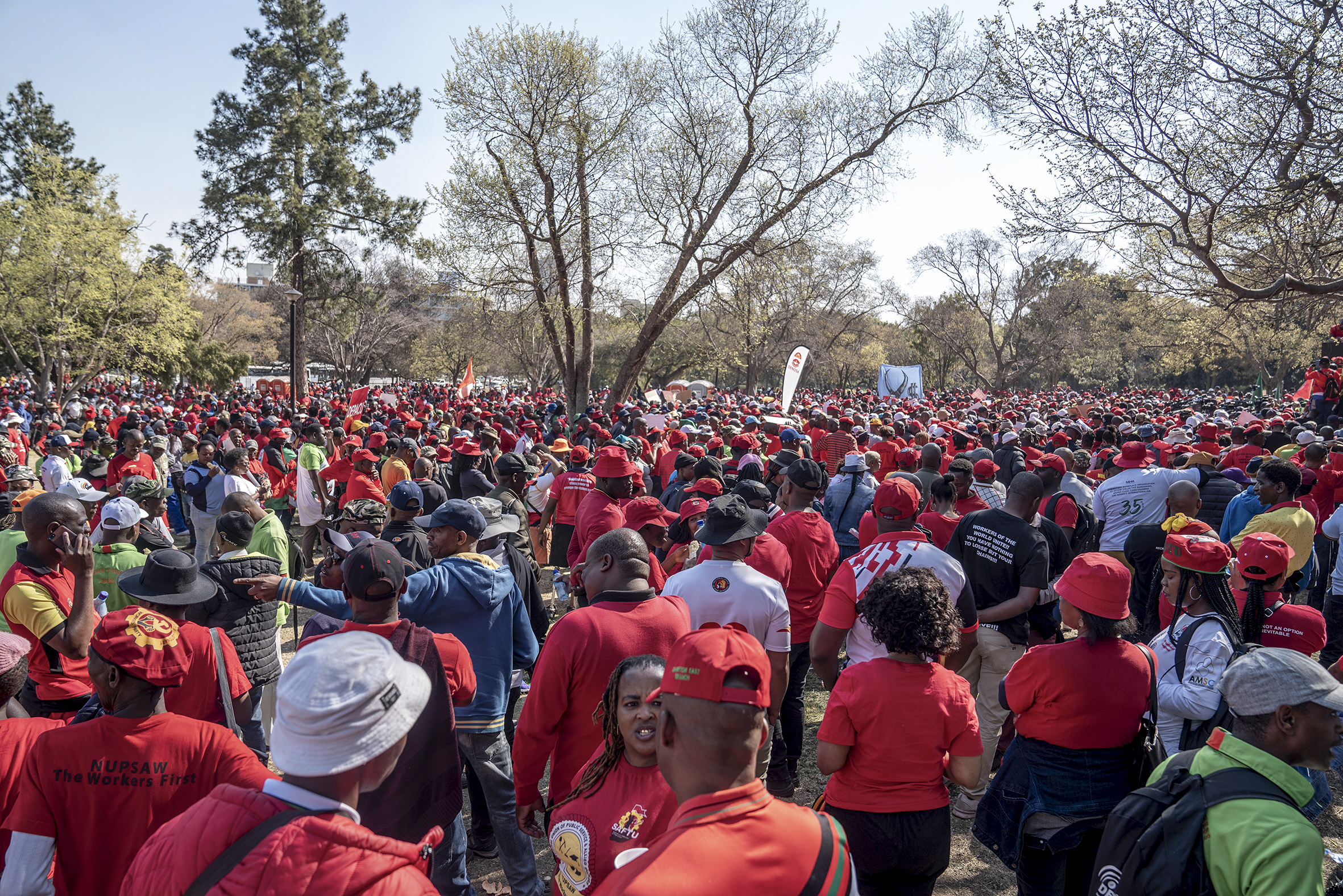
A sea of red at the Union Buildings in Pretoria as protesters are addressed by union leaders. (Photo: Shiraaz Mohamed)
So if everyone was in agreement about the problems, whose job is it to fix them?
That’s where the disagreement comes in. Gungubele largely disavowed government responsibility, saying that what is required to turn around the cost of living crisis is an improvement in the wider economic situation.
For the unions, however, this isn’t good enough. Among their demands: a basic income grant of R1,500, the rebuilding of a functioning public transport system, and an end to interest rate hikes.
Vavi warned on Monday that Wednesday’s action would be only the beginning: an initial demonstration to show the working class “the only thing is to fight back”. Whether that message was received, after Wednesday’s lacklustre display, remains to be seen. DM



















 Become an Insider
Become an Insider
Comments - Please login in order to comment.